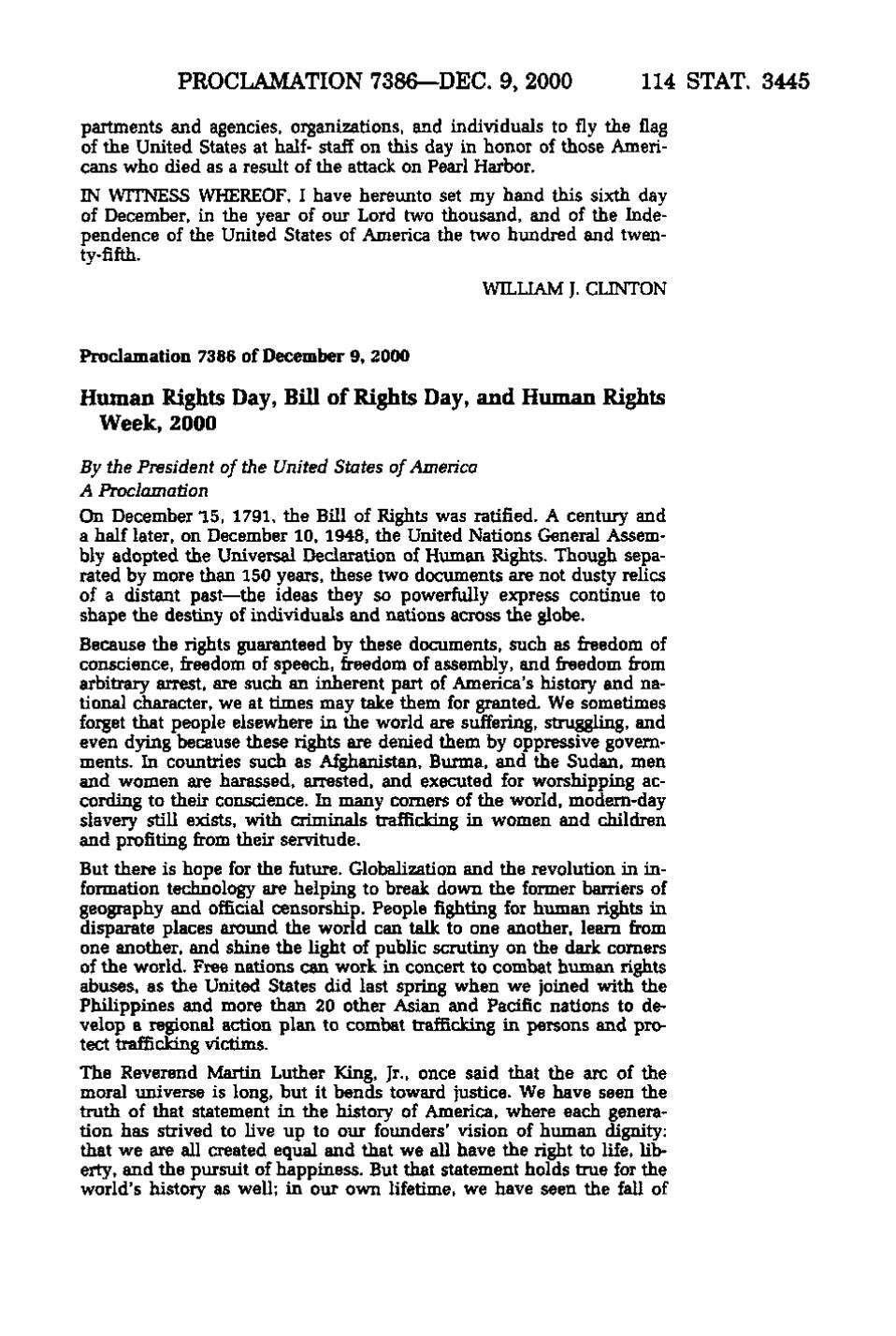PROCLAMATION 7386—DEC. 9, 2000 114 STAT. 3445 partments and agencies, organizations, and individuals to fly the flag of the United States at half- staff on this day in honor of those Americans who died as a result of the attack on Pearl Harbor. IN WITNESS WHEREOF, I have hereunto set my hand this sixth day of December, in the year of our Lord two thousand, and of the Independence of the United States of America the two hundred and twenty-fifth. WILLIAM J. CLINTON Proclamation 7386 of December 9, 2000 Human Rights Day, Bill of Rights Day, and Human Rights Week, 2000 By the President of the United States of America A Proclamation On December 15, 1791, the Bill of Rights was ratified. A centiuy and a half later, on December 10, 1948, the United Nations General Assembly adopted the Universal Declaration of Human Rights. Though separated by more than 150 years, these two documents are not dusty relics of a distant past—the ideas they so powerftilly express continue to shape the destiny of individuals and nations across the globe. Because the rights guaranteed by these documents, such as freedom of conscience, freedom of speech, freedom of assembly, and freedom from arbitrary arrest, are such an inherent part of America's history and national character, we at times may take them for granted. We sometimes forget that people elsewhere in the world are suffering, struggling, and even dying because these rights are denied them by oppressive governments. In countries such as Afghanistan, Biirma, and the Sudan, men and women are harassed, arrested, and executed for worshipping according to thefr conscience. In many comers of the world, modern-day slavery still exists, with criminals trafficking in women and children and profiting from their servitude. But there is hope for the future. Globalization and the revolution in information technology are helping to break down the former barriers of geography and official censorship. People fighting for himian rights in disparate places around the world can talk to one another, learn from one another, and shine the light of public scrutiny on the dark comers of the world. Free nations can work in concert to combat human rights abuses, as the United States did last spring when we joined with the Philippines and more than 20 other Asian and Pacific nations to develop a regional action plan to combat trafficking in persons and protect trafficking victims. The Reverend Martin Luther King, Jr., once said that the arc of the moral universe is long, but it bends toward justice. We have seen the truth of that statement in the history of America, where each generation has strived to live up to our founders' vision of human dignity: that we are all created equal and that we all have the right to life, liberty, and the pursuit of happiness. But that statement holds true for the world's history as well; in our own lifetime, we have seen the fall of
�
